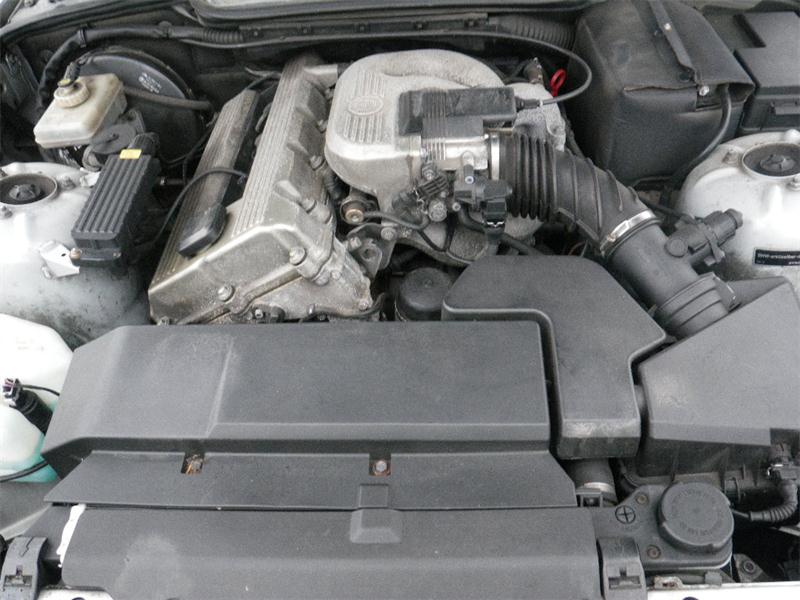Updating Your BMW 318ti: Top Mods and Enhancements
Wiki Article
Secret Functions to Look for When Getting an Engine for Automotive Applications
When taking into consideration the purchase of an engine for auto applications, a number of key functions require mindful assessment to make certain ideal efficiency and functionality. From power and efficiency abilities to sustain resilience, adherence, and performance to emissions requirements, each facet plays an important function in determining the engine's viability for specific automobile requirements.Power and Efficiency
When selecting an automobile engine, purchasers focus on power and efficiency to make certain optimum driving experience and performance. The power result of an engine, frequently determined in horse power (HP) or kilowatts (kW), determines the acceleration, top speed, and overall abilities of a car. Greater power rankings generally cause quicker acceleration and much better performance, particularly during surpassing or lugging hefty loads. Efficiency, on the various other hand, incorporates a more comprehensive range of features, consisting of gas effectiveness, exhausts, integrity, and total driving characteristics. A well-performing engine not just delivers power efficiently but also runs efficiently throughout various speed varieties and driving problems.In addition, elements such as engine displacement, crossbreed, and turbocharging modern technologies play significant functions in boosting both power and performance levels. Eventually, picking an engine that supplies a potent combination of power and efficiency makes certain a satisfying and effective driving experience.
Gas Efficiency
Enhancing fuel performance is a critical consideration for customers when evaluating automotive engine choices. The performance of an engine directly influences operating expense and ecological footprint. One crucial element affecting gas effectiveness is the engine's layout and technology. Modern engines with attributes like direct fuel shot, turbocharging, and variable valve timing can substantially enhance gas efficiency by enhancing burning procedures and lowering power loss. Furthermore, the total weight of the engine and lorry, as well as the aerodynamics, play vital duties in establishing gas intake.

Toughness and Reliability
Attaining resilient efficiency and trustworthy operation is necessary for consumers examining the resilience and dependability of vehicle engines. When considering an engine for vehicle applications, resilience describes the engine's ability to stand up to wear, stress, and extreme operating problems over a prolonged duration. Reliability, on the other hand, indicates that the engine can consistently do its desired function without unforeseen failures or failures.Consumers must look for engines built with top notch products and accurate engineering to make certain longevity. Components such as crankshafts, pistons, and bearings need to be durable to deal with the engine's power outcome without early wear. In addition, engines outfitted with advanced cooling systems, effective lubrication, and robust filtering systems have a tendency straight from the source to show greater degrees of integrity.
Normal upkeep and adherence to supplier recommendations are also crucial consider protecting an engine's resilience and dependability. By adhering to maintenance timetables, utilizing recommended liquids, and resolving any issues immediately, customers can take full advantage of the life-span and efficiency of their automotive engines. see here Ultimately, focusing on longevity and dependability in engine option can lead to an extra enjoyable possession experience with fewer unexpected interruptions.
Exhausts Conformity
Making sure compliance with emissions laws is an essential facet of examining automobile engines for environmentally aware consumers. With increasing problems regarding air quality and ecological effect, strict exhausts requirements have been implemented globally to lower damaging pollutants launched into the ambience. When buying an engine for automotive applications, it is vital to consider its discharges conformity to reduce the carbon impact and stick to lawful demands.Modern engines are outfitted with sophisticated exhaust control innovations such as catalytic converters, exhaust gas recirculation (EGR) systems, and selective catalytic decrease (SCR) to reduce damaging exhaust gases like nitrogen oxides (NOx), carbon monoxide (CO), and hydrocarbons (HC) These systems play a crucial function in ensuring that the engine satisfies the defined emissions requirements and runs within acceptable restrictions.

Cost-effectiveness
When considering automobile engine acquisitions, reviewing cost-effectiveness is paramount for consumers seeking both performance and value. Cost-effectiveness in engine purchase includes even more than simply the first acquisition rate. It incorporates the total expenses connected to maintenance, fuel consumption, and potential repairs over the engine's lifespan. Opting for an engine that provides a balance between upfront costs and long-term savings can cause substantial advantages for the consumer.One trick element of cost-effectiveness is fuel performance. Engines that are made to make best use of gas economic climate can lead to significant cost savings in time, especially for people who drive frequently or over cross countries. Additionally, taking into consideration the accessibility and affordability of extra parts and maintenance can contribute to the overall cost-effectiveness of an engine. Making certain that maintenance and repairs are affordable and available can avoid unanticipated monetary worries down the line.

Verdict
In conclusion, when purchasing an engine for vehicle applications, it is critical to consider essential functions such as power and efficiency, gas performance, integrity and durability, emissions compliance, and cost-effectiveness. These factors are important in guaranteeing that the engine meets the requirements of the car and operates effectively in various driving problems - bmw 318ti. Making a notified decision based on these criteria will ultimately bring about a effective and successful automotive engine acquisitionFrom power and efficiency abilities to fuel adherence, efficiency, and longevity to emissions criteria, each element plays an important role in establishing the engine's suitability for specific auto requirements. Engines designed to run on different fuels such as electrical power, hybrid systems, or biofuels can offer enhanced fuel economic climate and lower exhausts compared to typical gas or diesel engines. Customers must carefully think about the fuel effectiveness ratings and innovations incorporated right into auto engines to make educated purchasing decisions that straighten with their concerns for expense savings and sustainability.
When thinking about an engine for automotive applications, toughness refers to the engine's ability to stand up to wear, stress and anxiety, and severe operating problems over an extended period.In verdict, when purchasing an engine for automobile applications, it is essential to consider crucial functions such as power and performance, gas reliability, resilience and effectiveness, discharges conformity, and cost-effectiveness.
Report this wiki page